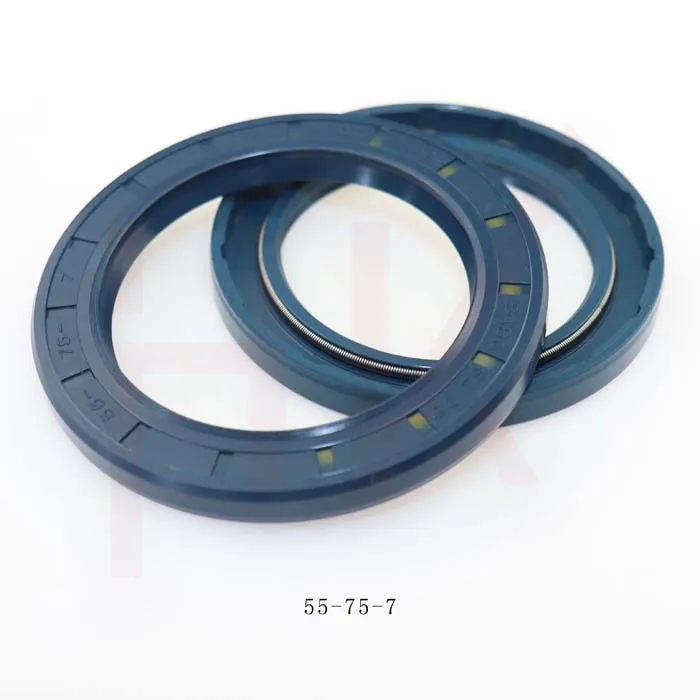Samh . 29, 2024 19:07 Back to list
Hydraulic Cylinder Wiper Seals for Enhanced Performance and Durability in Equipment
Understanding Wiper Seals in Hydraulic Cylinders
Hydraulic cylinders are essential components in various machinery and equipment, enabling the conversion of hydraulic energy into mechanical force. At the heart of their efficiency and reliability is a simple yet crucial component known as the wiper seal. This article delves into the importance, function, and types of wiper seals used in hydraulic cylinders.
What is a Wiper Seal?
A wiper seal, also referred to as a dust seal, is designed to prevent contaminants such as dirt, dust, and moisture from entering the hydraulic cylinder. Located at the outermost part of the cylinder, it works in conjunction with other seals to ensure the internal components maintain their integrity and function optimally.
Function of Wiper Seals
The primary function of a wiper seal is protection. Hydraulic systems operate under high pressure and require a clean environment to function efficiently. If contaminants infiltrate the hydraulic cylinder, they can cause premature wear of the internal seals, pistons, and cylinder walls. This wear can lead to leaks and ultimately system failure, resulting in costly repairs and downtime.
Wiper seals play a vital role in prolonging the life of hydraulic systems. By blocking harmful particles, they contribute to maintaining the hydraulic fluid's cleanliness and effectiveness. Additionally, wiper seals help retain lubrication within the cylinder, which reduces operational friction and enhances performance.
Types of Wiper Seals
Wiper seals come in various designs and materials, tailored for specific applications. Some common types include
wiper seal hydraulic cylinder

1. Single Acting Wiper Seals These are designed for cylinders that exert force in one direction. They provide an effective sealing action when the cylinder is in operation while effectively keeping dirt and moisture out during retraction.
2. Double Acting Wiper Seals Used in applications where the cylinder operates in both directions, these seals offer protection while ensuring that the hydraulic fluid does not leak out on either side of the piston.
3. Polyurethane Wiper Seals Known for their durability, polyurethane wiper seals resist abrasion and have excellent chemical compatibility, making them ideal for environments with harsh fluids.
4. Rubber Wiper Seals Typically less expensive than their polyurethane counterparts, rubber wiper seals are flexible and provide good sealing properties, though they may not withstand extreme conditions as well as polyurethane seals.
Key Considerations in Selecting Wiper Seals
When selecting a wiper seal for a hydraulic cylinder, several factors should be considered
- Operating Environment The presence of dust, dirt, moisture, or corrosive chemicals can influence the choice of materials. - Temperature Range Both the operating and ambient temperature can affect seal performance. Material selection should account for these variances. - Cylinder Size and Specifications The wiper seal must fit the hydraulic cylinder’s dimensions precisely to avoid leaks and ensure optimal performance.
Conclusion
Wiper seals, though often overlooked, are critical for the effective and prolonged operation of hydraulic cylinders. Their ability to prevent contaminants from entering the hydraulic system significantly influences system performance and lifespan. By choosing the right type and material of wiper seal, businesses can ensure that their hydraulic systems function smoothly, improving efficiency and minimizing maintenance costs. With ongoing advancements in seal technology, the future holds even more promise for enhancing the reliability of hydraulic systems across various industries.
-
The Trans-formative Journey of Wheel Hub Oil Seals
NewsJun.06,2025
-
Graphene-Enhanced Oil Seals: Revolutionizing High-Pressure Oil Sealing
NewsJun.06,2025
-
Future of Hydraulic Sealing: Advanced Intelligent TCN Oil Seals
NewsJun.06,2025
-
Don’t Let a Broken TCV Oil Seal Ruin Your Day
NewsJun.06,2025
-
Bio-Inspired Dust Seals for Better Sealing Performance
NewsJun.06,2025
-
Biodegradable and Sustainable Hydraulic Seal Materials
NewsJun.06,2025
-
Top Oil Seal Solutions for Your Industrial Needs
NewsMay.22,2025
Products categories
















